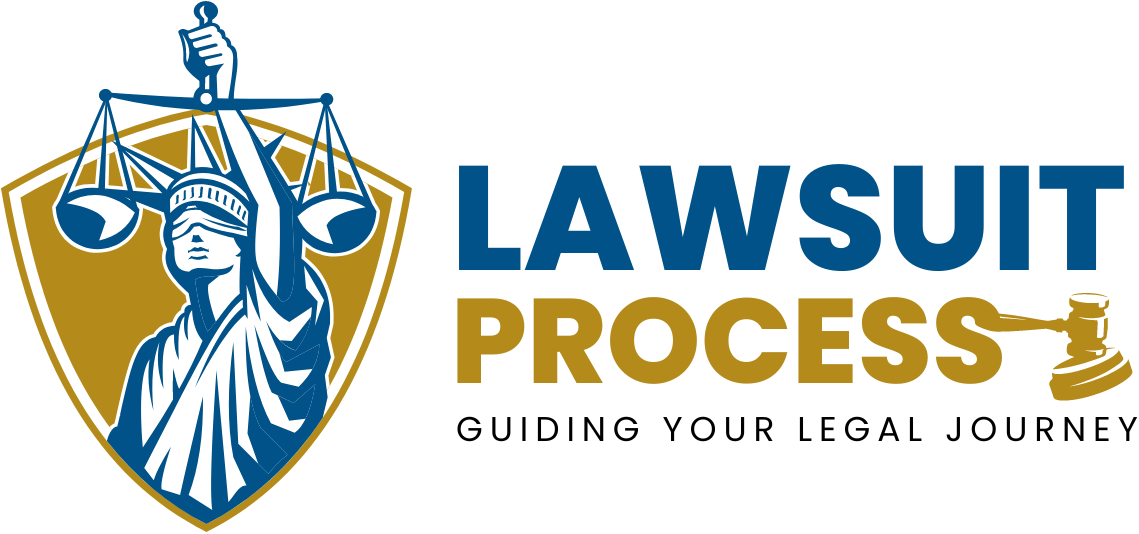One of the most common questions people ask when considering legal action is: How long does a lawsuit take? The answer isn’t as simple as a fixed number of days or months. It varies. A lawsuit can take anywhere from a few months to several years, depending on many factors.
Let’s walk through the different phases of a lawsuit to understand how long each part might take and what influences the overall timeline.
Table of Contents
- 1. Pre-Lawsuit Phase (Demand and Negotiation)
- 2. Filing the Lawsuit
- 3. Discovery Phase
- 4. Pre-Trial Motions and Hearings
- 5. Mediation or Settlement Conferences
- 6. Trial
- 7. Post-Trial Motions and Appeals
- Factors That Affect Lawsuit Duration
- Typical Timeframes by Case Type
- How to Speed Up a Lawsuit
- Why Lawsuits Often Take So Long
- Key Takeaway
- Frequently Asked Questions
1. Pre-Lawsuit Phase (Demand and Negotiation)
Before a lawsuit is even filed, there’s often a pre-litigation phase. This includes:
- Initial investigation
- Gathering of evidence
- Sending a demand letter
- Attempting to negotiate a settlement
This phase can take weeks to several months. If the other party is cooperative, a resolution may happen here. If not, things move to the next phase.
2. Filing the Lawsuit
Once a decision is made to sue, the plaintiff files a complaint in the appropriate court. This process is relatively quick—usually a matter of days. But after filing:
- The defendant must be formally served with the complaint.
- The defendant has a set time to respond—often 20 to 30 days.
Delays can occur if the defendant avoids service or asks for extensions.
3. Discovery Phase
This is often the longest part of a lawsuit. During discovery, both sides gather and exchange evidence. This includes:
- Interrogatories (written questions)
- Depositions (in-person questioning)
- Requests for documents
- Expert witness reports
Discovery can take 6 months to over a year, depending on the complexity of the case and the willingness of both sides to cooperate.
4. Pre-Trial Motions and Hearings
Before going to trial, there may be several motions filed by either party. These can include:
- Motions to dismiss the case
- Motions for summary judgment
- Requests to exclude evidence
Each motion may require time to prepare, file, and argue in court. Rulings on these motions can take weeks or months. In some cases, they can end the lawsuit early.
5. Mediation or Settlement Conferences
Courts often encourage parties to resolve disputes without trial. This may include:
- Voluntary mediation
- Court-ordered settlement conferences
If successful, the case ends here. If not, it moves toward trial. These settlement attempts typically occur midway through discovery or before trial.
6. Trial
Trials can last from a single day to several weeks. The actual length depends on:
- The number of witnesses
- Amount of evidence
- Legal arguments and complexity
However, scheduling a trial date can be a major delay. Courts are often backed up, and your case might not be heard for months or even over a year after discovery ends.
7. Post-Trial Motions and Appeals
After the verdict, either party may file post-trial motions or appeal the decision. Appeals add more time—often 6 months to 2 years depending on the court and issues involved.
Factors That Affect Lawsuit Duration
Several things can influence how fast or slow a case moves:
- Complexity: More complicated legal issues or large amounts of evidence slow things down.
- Number of parties: More parties involved = more coordination and delays.
- Court backlog: Busy courts mean longer wait times for hearings and trial dates.
- Lawyer strategy: Some legal strategies intentionally draw out proceedings.
- Settlement negotiations: Ongoing talks can delay court deadlines, but may resolve the case faster in the end.
- Unexpected events: Illness, key witness issues, or legal changes can also cause delays.
Typical Timeframes by Case Type
Here’s a rough estimate for how long different lawsuits might take:
- Small Claims Cases: 2 to 5 months
- Personal Injury Lawsuits: 1 to 3 years
- Business Disputes: 1 to 4 years
- Employment Lawsuits: 1 to 2 years
- Class Action Lawsuits: 2 to 10+ years
- Medical Malpractice: 2 to 5 years
Keep in mind, these are averages. Your case could be shorter or longer.
How to Speed Up a Lawsuit
If you’re involved in a lawsuit and want it resolved faster, consider these tips:
- Hire an experienced attorney who knows how to move cases forward efficiently.
- Respond quickly to requests for information or documents.
- Stay organized and keep records handy.
- Consider settlement options early, especially if liability is clear.
- Be proactive—ask your lawyer about possible delays and how to avoid them.
Why Lawsuits Often Take So Long
Litigation is a detailed process. It’s built to ensure fairness and justice—not speed. Every party has rights that must be respected. Every step involves legal procedure, deadlines, and documentation.
While that can be frustrating, especially when stakes are high, it’s meant to protect all involved. That’s why working with a skilled legal team matters—they know how to keep things moving while protecting your interests.
Key Takeaway
Lawsuits are not quick affairs. They involve multiple stages and can stretch over months or years depending on many factors. The more complex the case, the longer it usually takes. But knowing the process can help you prepare mentally and practically.
- Most lawsuits take between 1 to 3 years, though some may resolve faster or drag on longer.
- The discovery phase is often the longest part of the lawsuit.
- Delays can result from court scheduling, legal motions, and ongoing settlement talks.
- You can take steps to speed up the process, such as staying organized and considering early settlement.
- Each case is different. Speak to an attorney to get a better estimate based on your situation.
Frequently Asked Questions
1. What is the average length of a lawsuit?
Most lawsuits take between 1 to 3 years from start to finish. However, the timeline can vary widely based on the type of case, complexity, and court backlog.
2. Why do lawsuits take so long?
Lawsuits take time because of procedural steps like discovery, pre-trial motions, court scheduling, and settlement discussions. Legal protections also ensure both parties have enough time to prepare.
3. Can a lawsuit be resolved quickly?
Yes, if both parties agree to settle early or use mediation. Some cases are resolved in a few months without going to trial.
4. How long does it take to file a lawsuit?
Filing a lawsuit can take just a few days, but preparing the complaint and serving the defendant can add a few more weeks.
5. How long does the discovery process last?
Discovery typically lasts 6 months to 1 year, but it may take longer in complex cases involving lots of evidence or expert witnesses.
6. How long before a court date is set?
Court dates can be set a few months to a year after filing, depending on the court’s schedule and the case’s complexity.
7. Can I speed up my lawsuit?
You can help speed up your lawsuit by responding quickly to your attorney, being organized, and considering settlement options early on.
8. How long does a civil lawsuit take?
A typical civil lawsuit takes 1 to 3 years, although simpler civil matters like small claims may be resolved in just a few months.
9. How long does a personal injury lawsuit take?
Personal injury cases often take 1 to 3 years to resolve, depending on the severity of the injury and whether the case settles or goes to trial.
10. How long does a medical malpractice case take?
Medical malpractice cases usually take 2 to 5 years due to their complexity, expert testimony, and high stakes.
11. How long does a class action lawsuit take?
Class action lawsuits can take several years—often 2 to 10 years or more—depending on the number of plaintiffs and legal issues involved.
12. How long does a lawsuit settlement take?
If a settlement is reached early, a case could resolve in weeks or months. Otherwise, settlements may happen closer to trial, after a year or more.
13. How long does a lawsuit take after deposition?
After depositions, it may take several months to a year to reach trial or settlement, depending on the case and any pending motions.
14. How long does it take to get paid after a lawsuit settlement?
Once a settlement is agreed upon, payment usually arrives within 30 to 60 days, though it can vary based on the terms and type of case.
15. Can a lawsuit be delayed on purpose?
Yes, either party may cause delays through legal motions, requesting extensions, or failing to cooperate during discovery.
16. What happens if a lawsuit takes too long?
If a lawsuit drags on unnecessarily, courts can issue orders to move it forward. In extreme cases, the court may dismiss it for inactivity.
17. How long does a federal lawsuit take?
Federal cases typically take 1 to 3 years, but some may move faster due to stricter court deadlines.
18. How long does a wrongful termination lawsuit take?
Wrongful termination cases usually last 1 to 2 years, depending on the complexity of evidence and whether a settlement is reached.
19. Does filing a lawsuit guarantee a trial?
No, most lawsuits are settled before reaching trial. Only a small percentage go all the way to a court verdict.
20. How long does it take for a judge to make a decision?
Judges may issue decisions within days or weeks after a hearing or trial, but some complex rulings may take longer.
21. What is the statute of limitations for filing a lawsuit?
This depends on the type of case and the state. It can range from 1 to 6 years or more. It’s best to consult an attorney quickly.
22. Can I sue if the other party delays the process?
You can’t file a separate lawsuit for delays, but your attorney can request court action to keep the case moving.
23. What causes delays in lawsuits?
Delays often stem from court backlogs, late filings, discovery disputes, witness availability, and settlement talks.
24. How long do small claims lawsuits take?
Small claims cases usually resolve within 2 to 5 months, depending on local court procedures and case load.
25. How long do employment lawsuits take?
Employment lawsuits typically take 1 to 2 years, though some may settle sooner if the evidence is straightforward.
26. How long does a defamation lawsuit take?
Defamation cases often take 1 to 3 years, depending on whether the matter is settled or goes to trial.
27. How long does a probate lawsuit take?
Probate lawsuits may take 6 months to several years depending on estate size and disputes among heirs or beneficiaries.
28. Can court delays be challenged?
Yes, if delays are unreasonable, attorneys can file motions to expedite the case or ask the court to enforce deadlines.
29. How long does it take for a jury trial to happen?
It may take 1 to 2 years to reach a jury trial, depending on discovery and court availability.
30. How long does an appeal add to a lawsuit?
An appeal can add 6 months to 2 years or more to a lawsuit, depending on the issues and the appellate court’s schedule.
31. Is it better to settle or go to trial?
Settlement is often faster and less costly than trial. But the best choice depends on your case’s strength and what you’re willing to accept.










